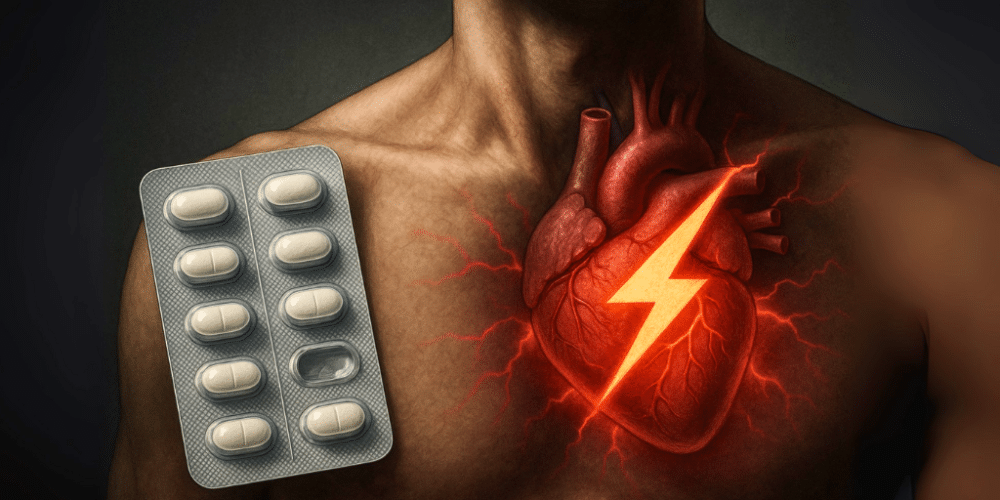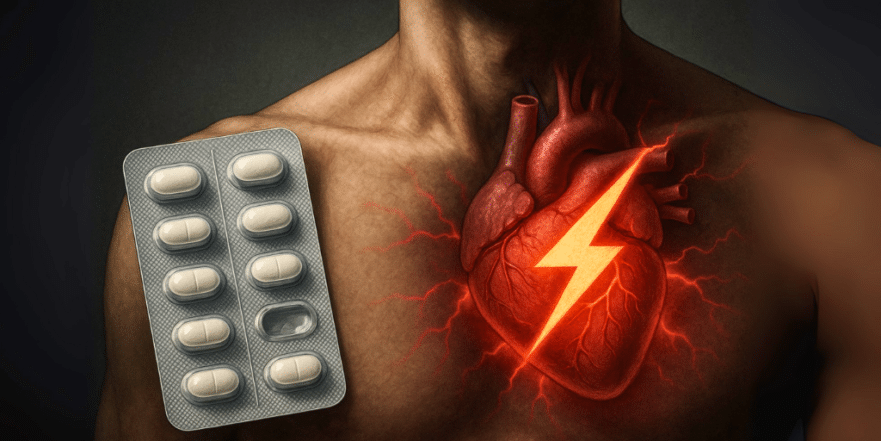
A medication that millions of people have trusted for years to manage their high blood pressure may come with a serious, previously unknown risk. A recent large-scale study from Europe has uncovered a surprising link between high doses of a common drug, nifedipine, and an increased risk of sudden cardiac arrest, a life-threatening heart event.
Key Takeaways
- A new study found that high doses (60 mg per day) of the blood pressure medicine nifedipine are associated with a higher risk of sudden cardiac arrest.
- Another common blood pressure drug, amlodipine, did not show a similar risk.
- The findings were consistent across two large, independent studies in the Netherlands and Denmark.
- Researchers advise patients currently taking nifedipine not to stop their medication but to speak with their doctor about these new findings and potential alternatives.
A Silent, Sudden Threat
To understand why this finding is so important, you first need to know about sudden cardiac arrest. It’s not the same as a heart attack. Sudden cardiac arrest is an electrical problem where your heart abruptly and unexpectedly stops beating. When this happens, blood flow to the brain and other vital organs ceases. A person will lose consciousness and stop breathing. Without immediate intervention like CPR or a shock from a defibrillator, it is fatal within minutes. In Europe, it’s responsible for about half of all heart-related deaths, highlighting the severity of this medical emergency.
Uncovering the Link
Researchers were investigating two widely used blood pressure medications called calcium channel blockers: nifedipine and amlodipine. Both work by relaxing your blood vessels to help blood flow more easily. In a study of over 2,500 patients who had experienced sudden cardiac arrest in Amsterdam, the team found a notable pattern. Those taking high doses of nifedipine—specifically 60 milligrams a day—were significantly more likely to have suffered a cardiac arrest compared to those not on the drug. To confirm this wasn’t a fluke, they replicated the study using a massive dataset from Denmark with over 8,000 patients, and the results were the same. The risk did not appear with amlodipine, suggesting the effect is specific to nifedipine.
A Risk Hidden in Plain Sight
You might be wondering how a risk this serious could go unnoticed for a drug that has been on the market for decades. The researchers point out that studying the causes of sudden cardiac arrest is incredibly challenging. Because it happens so quickly and is often fatal before a person can even get to a hospital, collecting reliable data has always been a major hurdle for scientists. This new research used large population-wide data, which allowed them to spot a pattern that smaller, traditional studies might have missed.
What Should You Do?
The most important message from the researchers is this: do not stop taking your blood pressure medication. Abruptly stopping can be very dangerous and lead to uncontrolled high blood pressure. Instead, this study should serve as a prompt for a conversation. If you are taking nifedipine, especially at a high dose, schedule an appointment with your doctor. You can discuss your concerns, review your dosage, and explore whether switching to a different medication, such as amlodipine, might be a safer option for you. Your doctor can help you weigh the benefits and risks based on your personal health profile.
The Takeaway
This study serves as a powerful reminder that science is always evolving, and even long-trusted medications need continued scrutiny. While high doses of nifedipine may increase the risk of sudden cardiac arrest, more research is needed to fully understand the connection. For now, the best course of action is to stay informed and work closely with your healthcare provider to ensure your treatment plan for high blood pressure is both effective and as safe as possible.
Scientific References
- Hulleman, M., et al. (2024). High-dose nifedipine and out-of-hospital cardiac arrest: A nationwide case-control study. Heart Rhythm. https://doi.org/10.1016/j.hrthm.2024.01.026
- American Heart Association. (n.d.). About Cardiac Arrest. https://www.heart.org/en/health-topics/cardiac-arrest/about-cardiac-arrest

